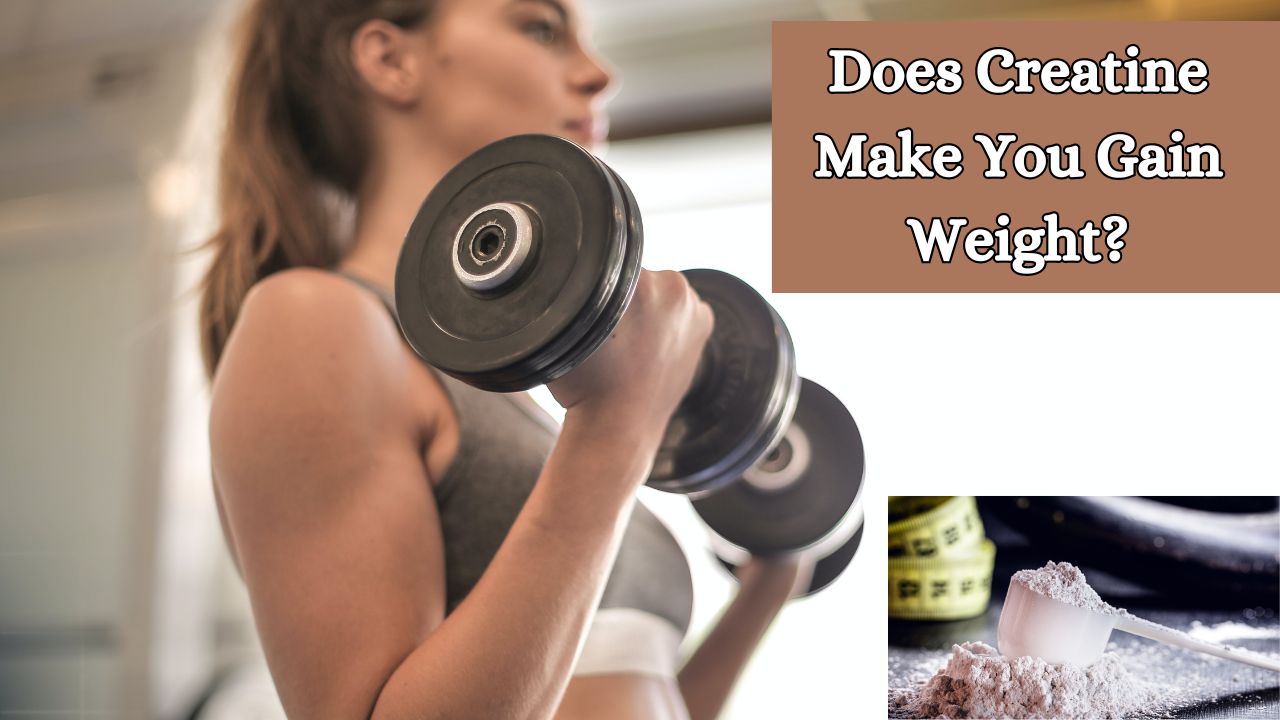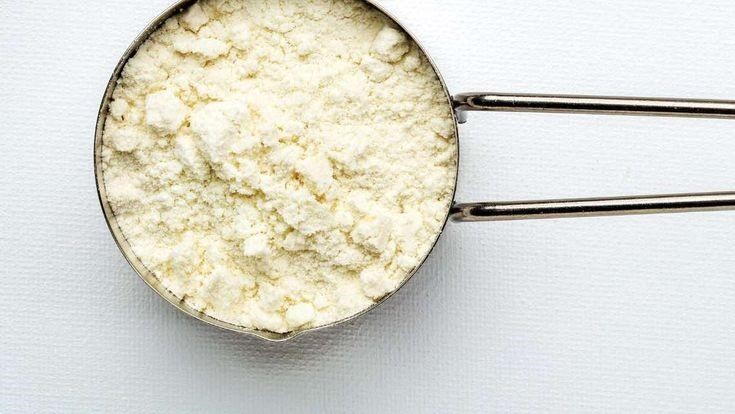Does Creatine Make You Gain Weight? Unveiling the Truth

Navigating the world of fitness supplements can often feel like deciphering a complex puzzle. Creatine, a popular supplement among fitness enthusiasts, frequently sparks discussions about its effects, particularly the concern surrounding weight gain.
So, does creatine make you gain weight?
Yes, creatine leads to weight gain due to increased water retention and long-term muscle development. It helps muscles store water and boosts energy, contributing to the scale’s increase, mostly in muscle mass, not fat.
This article explores the science of creatine and how it affects muscle mass, weight, and general performance. Keep reading!
What Is Creatine?
Creatine is a naturally occurring compound within the human body and has gained popularity as a sports supplement. Many individuals turn to it to enhance their athletic performance, particularly for activities demanding quick bursts of power.

Natural Sources Of Creatine
Your body naturally manufactures approximately 1 gram of creatine daily through the utilization of specific amino acids.
Moreover, you can obtain creatine from dietary sources such as rare steak, which contains roughly 3 grams per pound.
Creatine Supplements
When folks take creatine supplements, like the common creatine monohydrate, they typically use 3-5 grams per day. This extra creatine helps saturate their muscles after about 4 weeks, which can improve their performance during activities that demand quick bursts of energy.
Some folks opt for a loading phase, taking 20-30 grams of creatine daily for a week, and then switching to a lower daily dose.
This can further enhance strength and lead to gaining muscle more quickly because increased strength makes it easier to build muscle.

Does Creatine Make You Gain Weight?
The straightforward answer is yes, but it’s imperative to fathom the intricacies of this weight gain.
Water Weight: The Initial Surge
The first factor underpinning weight gain when initiating creatine supplementation is water weight. Creatine’s osmotic activity causes it to draw water into your muscle cells.
This initial upsurge in water retention can result in an increase of approximately 2 to 4.5 pounds, particularly during the loading phase when a higher dose of creatine is initially consumed.
Muscle Mass: The Long-Term Effect
While water weight gain is transitory, creatine has a more profound and enduring impact on your physique. Research has unequivocally demonstrated that creatine can substantially enhance muscle strength and size.
As your muscle mass expands, it contributes to the overall weight on the scale, ultimately making you appear less bloated over time.
Non-Muscle Weight Gain
Does creatine make you fat? Well, despite the rapid increment in weight, it’s crucial to underscore that creatine does not induce fat gain.
Accumulating fat necessitates a surplus of calories, and creatine, in its pure form, is remarkably low in calorie content.
By maintaining a wholesome diet and an active lifestyle, the likelihood of gaining fat while using oral creatine is exceedingly remote.
Managing Water Weight
If you find the initial water weight gain disconcerting, here are some pragmatic measures to manage it:
- Amplify your water intake to stimulate urination, facilitating the expulsion of excess water.
- Curtail your sodium consumption, as elevated sodium levels can trigger water retention. Prioritize fresh fruits and vegetables over processed and fast foods, aiming to keep sodium intake below 2,300 milligrams daily.
- Exercise patience, as consistent physical activity can mitigate water retention. The more you engage in workouts and condition your body, the less water you will retain.
The Science Underpinning Creatine
To comprehend the weight gain phenomenon associated with creatine, it’s imperative to grasp the mechanistic processes within the body. Creatine, an amino acid, serves as an energy source for cells, especially during high-intensity activities.
Upon oral ingestion of creatine, it combines with a phosphate molecule to yield creatine phosphate, which furnishes the body with rapid energy for arduous endeavors.
This augmented energy production fosters an increase in muscle strength and endurance, primarily contributing to weight gain in the form of enhanced muscle mass.

Why Take Creatine?
Creatine isn’t just about gaining muscle; it offers a range of benefits, including:
- Enhanced athletic performance
- Increased endurance
- Improved strength
- Potential benefits for brain disorders
- Positive effects on muscular disorders
- Possible improvements in conditions like depression
Creatine Dosage Guidelines
Taking creatine properly involves considering dosage, duration, and potential supplements to enhance its effectiveness.
- Loading Phase: For optimal results, consider a loading phase with 20 grams per day, divided into 5g doses, for 5–7 days. Adjust based on body weight using the formula 0.3g/kg.
|
Body Weight (kg) |
Loading Phase (g/day) |
| 60 | 18 |
| 70 | 21 |
| 80 |
24 |
- Maintenance Phase: After the loading phase, maintain a lower dose ranging between 2–10 grams per day. Adjust within this range based on body weight.
| Body Weight (kg) | Maintenance Dose (g/day) |
| 60 | 2–6 |
| 70 | 3–7 |
| 80 | 4–8 |
Tips For Optimal Creatine Use
- Timing: Take creatine with a source of carbohydrates and/or proteins to enhance absorption, ideally as a pre-workout drink.
- Cycling: Consider cycling on and off creatine supplements. Use it for a few weeks, then take a break before starting again.
- Hydration: Ensure proper hydration, as creatine may increase muscle water retention.
- Consultation: Before starting or altering your creatine regimen, consult a healthcare professional robustalive, especially if you have pre-existing conditions.
Individual responses may vary, and these guidelines provide a general approach.
Monitoring your body’s reactions and consulting with a healthcare professional is crucial for a personalized creatine regimen.
Creatine Risks And Safety
While creatine is predominantly regarded as safe with minimal adverse effects, it is prudent to acknowledge potential risks:
- Elevated doses of creatine may raise apprehensions about potential harm to the liver, kidneys, or heart.
- Individuals with pre-existing liver, kidney, or heart conditions should consult a healthcare professional before embarking on creatine supplementation.
- Minor side effects could encompass muscle cramps, nausea, diarrhea, heat sensitivity, and dizziness.
- Creatine has the potential to interact with medications; thus, consultation with a healthcare provider is advised for individuals on medications.
- Those with bipolar disorder should exercise caution, as creatine may have the propensity to exacerbate manic symptoms in specific cases.
Frequently Asked Questions (FAQs)
Will I Lose Weight If I Stop Taking Creatine?
Yes, discontinuing creatine may result in a slight decrease in water retention within muscles, leading to a minor reduction in weight, primarily due to water loss. However, this change is small and shouldn’t cause significant weight loss concerns.
Does Creatine Give You Energy?
Yes, creatine provides energy by aiding in producing ATP, the primary energy currency for muscles during high-intensity activities like weightlifting or sprinting. This energy boost increases workout intensity, potentially leading to muscle growth. Additionally, creatine may support post-exercise recovery, further contributing to sustained energy levels in the long term.
Should I Take Creatine While Trying To Lose Weight?
Yes, incorporating creatine while aiming to lose weight can be beneficial as it aids in maintaining strength and power during workouts, which can be particularly helpful while on a calorie deficit. It supports training intensity and assists in better recovery, potentially minimizing the loss of strength typically experienced during weight loss efforts.
Conclusive Insights
In summation, creatine can indeed lead to weight gain, but it is pivotal to distinguish between water weight, muscle mass, and fat gain. The initial water weight is ephemeral, and over time, creatine’s primary contribution is the enhancement of muscle strength and size.
When utilized with a well-balanced diet and a consistent exercise regimen, creatine yields benefits without the apprehension of unwarranted fat accumulation.





